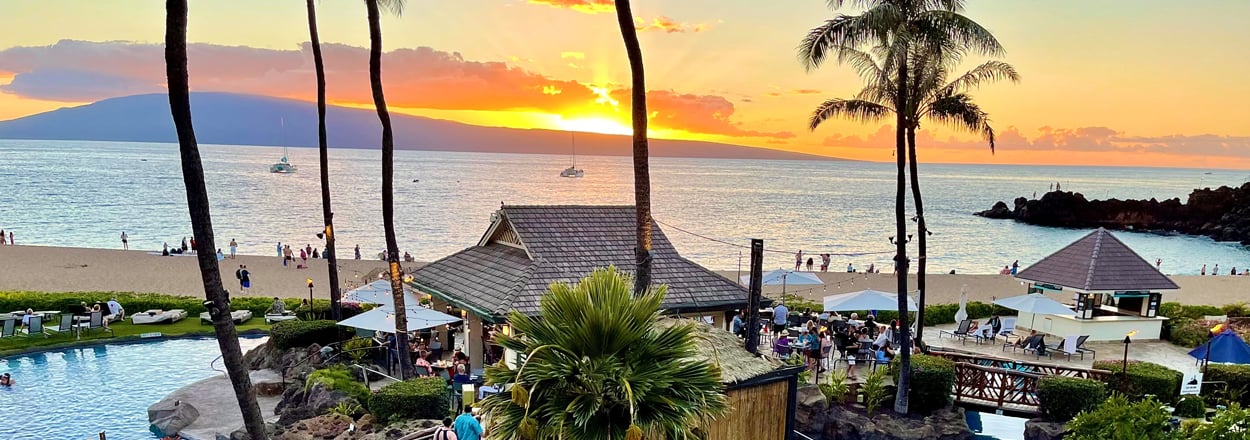Travelers are increasingly seeking experiences in nature, including physically rigorous activities like hiking, scuba diving and kayaking, as well as cultural exchange or immersion in remote lands.
As more and more travelers of all generations grow their love for the outdoors and increase their appetite for risk, the adventure travel niche is exploding: Expect the size of the market to grow 10-fold in the current decade, peaking at roughly $2.8 trillion by 2030, according to research from Next Move Strategy Consulting.
If you’re not already offering this type of journey as part of your travel services, now’s the time to develop your portfolio to meet the surging demand and earn a piece of the thriving business. Here, travel advisors and destination experts share their tips for breaking into the adventure travel niche and booking unforgettable outdoor adventure trips.
Find the Business
To build up your adventure travel bookings, meet clients where they are. That means checking out relevant expos in local markets, groups for enthusiasts interested in activities like biking or running, plus rock climbing gyms and other venues for like-minded thinkers.
“Options for finding clients attracted to adventure travel can vary almost as much as the activities themselves,” said Justin Smith, president of boutique travel agency The Evolved Traveler, which emphasizes responsible and sustainable adventure travel. He notes that advisors involved with their own relevant activities and hobbies — such as mountain biking or surfing — already have a rich, built-in audience among their peers.
If not, “Facebook and Meetup groups are great for making connections,” he said. Indeed, social media is a prime environment for reaching outdoor enthusiasts through targeted ads and organic engagement in pertinent groups for niche customers, including family travelers, solo travelers and camping or hiking enthusiasts.
Stephanie Vidergar is a marketing manager at Zephyr Adventures, which has been providing group adventure travel opportunities for more than 25 years. “As with any travel, you have to get into where the industry is operating and the people interested in this kind of travel are,” she said, citing an abundance of social media resources and live events. “The more you are in that realm, the more you find the opportunities to connect with these people.”
And certainly, you’ll be best positioned to sell adventure and outdoor travel if you get out there and experience it yourself. Rebecca Slater helms Rebecca Recommends, a global travel representation company for luxury resorts. “Successful travel advisors invest in their own personal education so they can share a first-hand review with their clients,” she said.
Stay Educated About Adventure Travel
Beyond pounding the pavement, there are also plenty of professional resources available to support advisors who wish to develop their adventure travel chops.
Vidergar recommends joining the Adventure Travel Trade Association, which has a membership option for travel advisors. “They have resources of all kinds and keep tabs on what is happening in the industry worldwide, [including] meetups, conferences and events, webinars and occasional opportunities to attend a FAM trip in a destination.”
Slater notes that wide-ranging representation companies — from destination partners to experts around a travel or lodging theme — are also an “incredible resource for travel advisors,” as “they know all the services their clients can provide and are always available to do a deeper destination and services introduction with a focus on adventure travel.” She further recommends tapping into the expertise of a destination management company (DMC) partner.
Top Adventure Travel Destinations
Adventure travel opportunities dot the globe, and the right destination for your clients will be the one that matches their desired activities, allotted time and budget. But if you’re just starting out with adventure travel booking, don’t take on more than you can reasonably handle with professionalism, Vidergar warns.
She notes that this type of travel “does require more research and logistics that need to be organized since there are routes to be mapped, gear that needs to be sourced and sometimes outfitters to be vetted and hired.” So if you don’t know a far-flung region or complex activity well, tap a partner for help — and they’ll earn a commission, of course.
Smith underscores that really understanding this “extensive and nuanced niche” requires a major commitment, but anyone can get started and offer a basic level of service in lighter, more local adventure travel experiences.
The good news is there’s plenty of adventure to be had close to home, with world-class travel destinations throughout the United States — no passport required. “While many travelers seek exotic destinations worldwide, suggesting the exploration of domestic wonders can be enticing,” Visit Phoenix Tourism Manager George Herrera said. “Travel advisors can find customers interested in booking adventure travel experiences by highlighting the natural beauty found within the United States.”
For instance, in his region, the Grand Canyon is an eye-popping (and glute-busting) natural wonder that pairs well with a high-end luxury stay in Phoenix. “Encouraging clients to discover the diverse landscapes and adventures within the U.S. can open up new possibilities for travel advisors and their customers,” he said.
Craft a Seamless Experience
One key component of successful adventure travel bookings for many travelers is balance — that is, balancing an adventure itinerary with slower-paced time to discover a region and even experience its luxury offerings.
“When selling this type of travel, advisors should emphasize the importance of allowing ample time for a comprehensive and enriching experience,” Herrera said. “Travelers often benefit from extending their stay beyond initial expectations. This allows them not only to engage in outdoor activities like hiking and biking but also to relish the amenities of a luxurious resort.”
Suggesting day trips to nearby destinations can add depth to the adventure, if time permits. “Reminding travelers to embrace the diverse offerings and take the time to immerse themselves in each destination will contribute to a more fulfilling travel experience,” Herrera said.
And as with any other category of travel, advisors must remember that no two travelers are alike in the adventure travel space; the concept of adventure means something different to each client.
“It is important to know if clients are thrill seekers that want to take it to the extreme,” Slater said. “Or the new generation of adventure travelers who relish experiences that are not high adrenaline and are seeking a more meaningful journey that enriches.”
One adventure traveler might be content with physical activity, such as hiking, kayaking or mountain biking, while another wants the excitement of adventure without the taxing physical exertion, such as a hot air balloon ride or an ATV or Hummer tour. At the end of an exciting day, one wants to taste wine in a posh hotel bar, while another wants to retire to a tent among swirling sand dunes.
Smith emphasizes the importance of qualifying exactly what “adventure” means to the specific client before making any assumptions. “Are they looking to incorporate some adventure components into their itinerary, or will their trip be entirely centered around these activities?” he said. “Those are two very different levels of engagement, and we need to understand their approach before we can plan ours to fulfill their requests.”
Originally appeared in the Summer 2024 issue of The Compass magazine
About the Author






comments